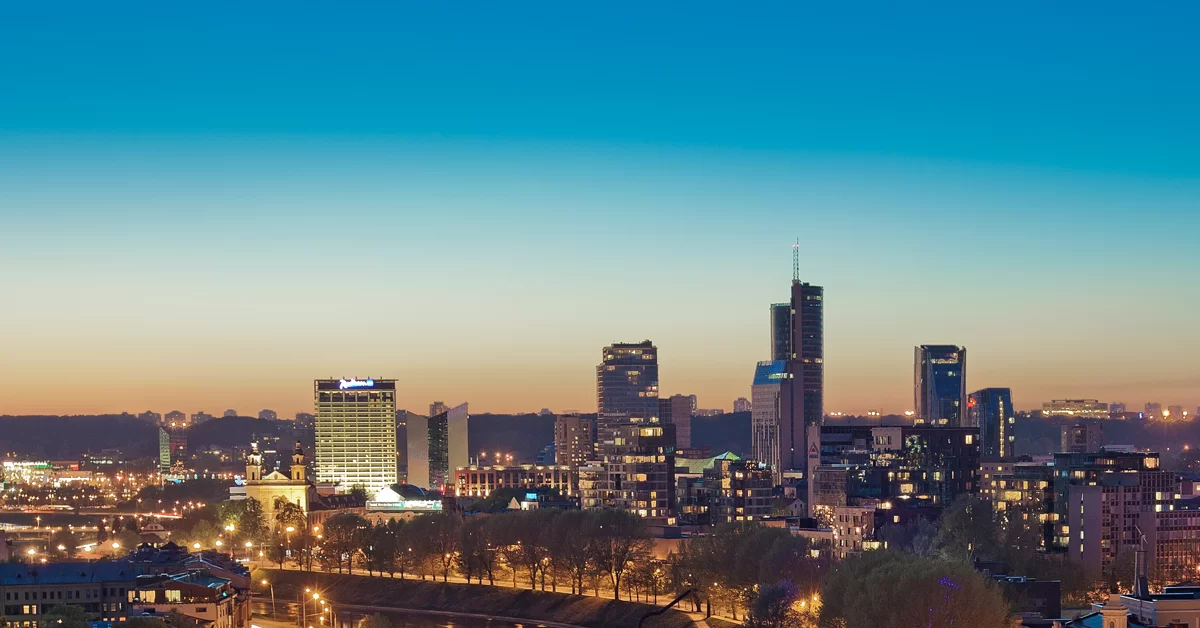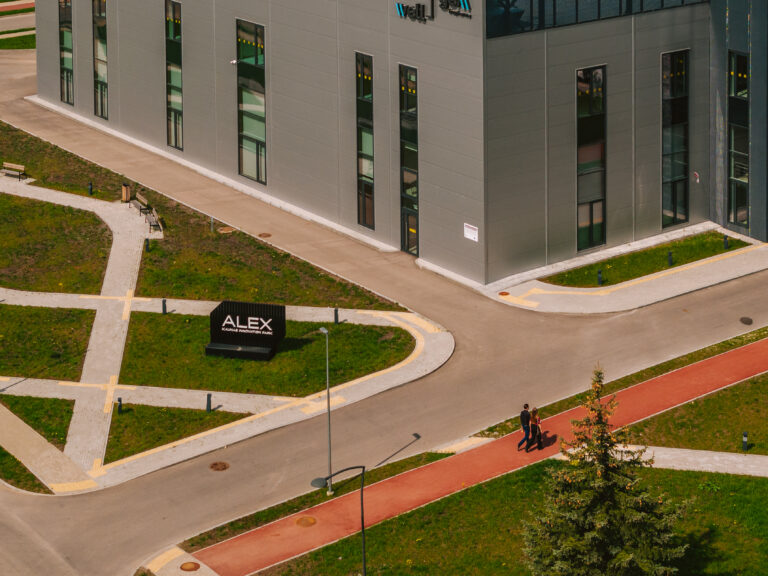Everything moves fast in the Lithuanian capital Vilnius. An up-and-coming youth and international companies eager to invest, have sent the commercial city soaring.
The skyline of Vilnius testifies how fast it goes at the moment. Mastodons of glass are springing up in droves north of the river Neris, which quietly winds through the Lithuanian capital, where the old buildings in the city center rarely reaches over four storeys high. The old market town has in recent years become the target for massive investment from international companies.
The financial companies in particular take up a prominent place in the picture. Swedbank, DNB, Barclays, SEB and Danske Bank have established itself in the old Eastern Block country, which in 1991 replaced its communist life in the Soviet Union with a new capitalistic reality. Since the country became a full member of the EU in 2004, it really became of interest for Western European companies.
“It’s a good country to invest in,” according to anthropologist and post-doctoral fellow, Ida Harboe Knudsen. “Wages are low and many of the young people have a higher education,” she explains.
For global companies, it is a matter of finding the best framework conditions for doing business, according to the Financial Sectors Employers’ Association.
“When the offshore tasks are moved to offices in other countries, it is often a combination of the fact the workforce in Denmark is too expensive compared to competency requirements and the administrative burdens are too heavy. These are perfectly legitimate considerations when a company needs to ensure the best possible mix of skills across borders and business areas in the international competition,” says Mariane Dissing, CEO of Financial Sectors Employers’ Association (FA).
Lithuania is also a country working hard to attract investors. Already at the airport you are met by the interest organization Invest Lithuania, that offers free WiFi for all travelers, while they talk about the fourth lowest corporate tax in the EU, the cheap rental price per square meter and a well-educated population. More than half of Lithuanians have a higher education and every other Lithuanian speaks at least two foreign languages, which the organization highlights in a brochure. For most people these two foreign languages are English and Russian.
New Lithuanians
The difference between young and old is big in Lithuania. The older generations have grown up in the Soviet Union, where Russian was a compulsory part of the school curriculum. In the 1990s it was replaced by English and today virtually all graduates in Lithuania speak English fluently.
The youth, who in the world of research are referred to as “New Lithuanians”, is a generation on its way forward. Like in many other countries they flock to the cities and universities to create a new life and a successful career.
“There has been a big shift in the new generation. They wear suits and speak fluent English. They are inquisitive, orient themselves internationally and have had totally new opportunities since Lithuania joined the EU,” says Ida Harboe Knudsen. Part of the reason is to be found in a political generational change that has been long in coming.
“During the Soviet era, there were not very many Russians in Lithuania. There was in Estonia and Latvia, and they are still there but because Lithuania was a largely agricultural country, it was less attractive for the Russians, partly because there were fewer opportunities for Russian specialists. This meant that many of the top posts in Lithuania were occupied by Lithuanians, where in the other Baltic countries, the top posts were occupied by Russians. In Estonia and Latvia the Russians were replaced when the Soviet Union fell. In Lithuania, there were no Russians to throw out and we did not want to discard experienced, Lithuanian officials and politicians,” Ida Harboe Knudsen explains.
In Estonia and Latvia the situation changed rapidly, because the top was replaced straight away.
“In Lithuania, it took longer, but it is happening now – young people sweep the old of course. The aggressive desire for change has arrived now, it is a natural replacement of a generation rather than an ethnic replacement,” she says.
Young optimism
In Vilnius however, you do not notice the poverty of the rural areas much. The large logos and shiny glass façades are adding luster to the experience of a country, or at least a city, that is moving forward. The young people know Vilnius is a contrast to the rest of the country and that poor working conditions and difficult lives still dominate the majority of the Lithuanian labour market. But the many investments in Vilnius creates optimism.
“The young Lithuanians say that if you want a really good workplace, you need to apply for a job in an international company, for they simply have better work conditions. If you are employed by Danske Bank, you will have, compared to Lithuanian conditions, a very good job with social security, good pay and activities for employees. But it is far from all that are so lucky,” says Ida Harboe Knudsen.
About Danske Kreds and the Financial Services Union Denmark
Danske Kreds represents the Financial Services Union Denmark in Danske Bank and negotiates the Group collective agreement in Denmark with the management of Danske Bank. Along with 180 union representatives in Danske Bank, Danske Kreds is the first point of contact for members of the FSU Denmark, when they need help or counselling on their worklife.
The Financial Services Union Denmark organizes 50,000 finance employees in Denmark, which is 80 % of all employees in the Danish finance sector. FSU Denmark negotiates the standard collective agreement covering the finance sector with the Association of Financial Sector Employers.
Author: Daniel Lundgren Jørgensen, Danske Kreds
This article was originally published in Danske Kreds’ magazine for members of the Financial Services Union in Danske Bank.
Source: www.finansforbundet.dk













